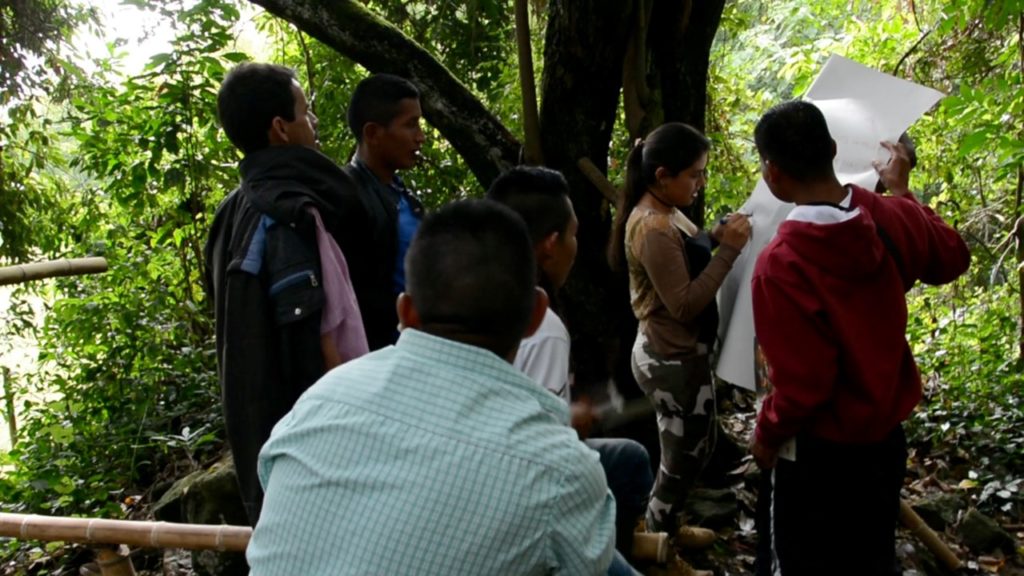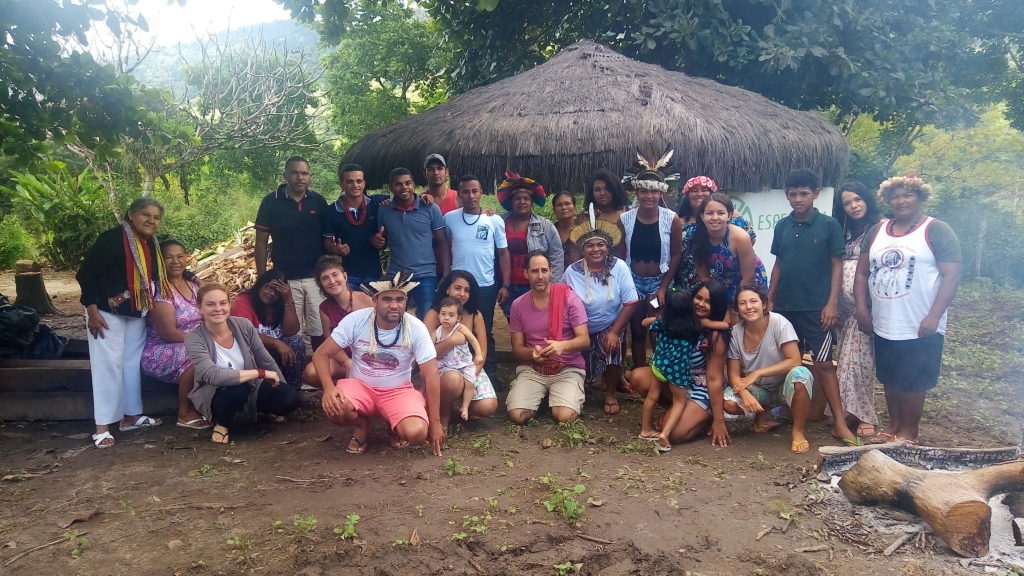Activities
The research network runs from November 2017 to December 2018.
The network was launched in Leeds at The Carriageworks Theatre on 14 November 2017.
Initial planning meetings involving different network members have been held in Leeds (November 2017 and April 2018), OIivença de Ihéus, Bahia (January 2018), Barcelona (May 2018), and via Skype with other network members.
Phase 1:
The activities of the research network are built around on-going in-community events to explore the topic run by project coordinators in Brazil (Nhenety Kariri-Xocó and Maria Pankararu, on behalf of Thydêwá) and Colombia (a representative of Pueblos en Camino). These activities will run May-August 2018. The overall emphasis in the proposal on in-community work seeks to ensure that indigenous participants in the network remain the intellectual fulcrum of the project.

Phase 2:
We will seek to bridge academic/third sector/grassroots research divides by running three international events in Brazil, Colombia and the UK involving as many network members as possible, and also seeking to raise awareness of the topic with members of the general public with an interest in environmentalism and social justice.
September 2018: Event in Rio, hosted by the Universidade Federal do Rio de Janeiro.
October 2018: Event(s) in Colombia, hosted by the Universidad Autónoma de Occidente and Pueblos en Camino.
November 2018: Research and outreach events in Leeds, hosted by the University of Leeds. There will also be an additional presentation of the research network’s work held at Goldsmiths College, University of London.
December 2018: Outreach event hosted by the University of Bristol.

Outputs
A page on our website will combine materials generated from the in-community activities, in particular more creative responses to the topic, together with short texts written by the academics involved in the network. In this way we hope to find a more egalitarian, multi-voiced way for the ideas that come out of the network to be expressed. We hope that this digital resource will serve as a point of reference for other indigenous and marginalised communities across Latin America.
The network will also publish its findings in a special issue of an academic journal.